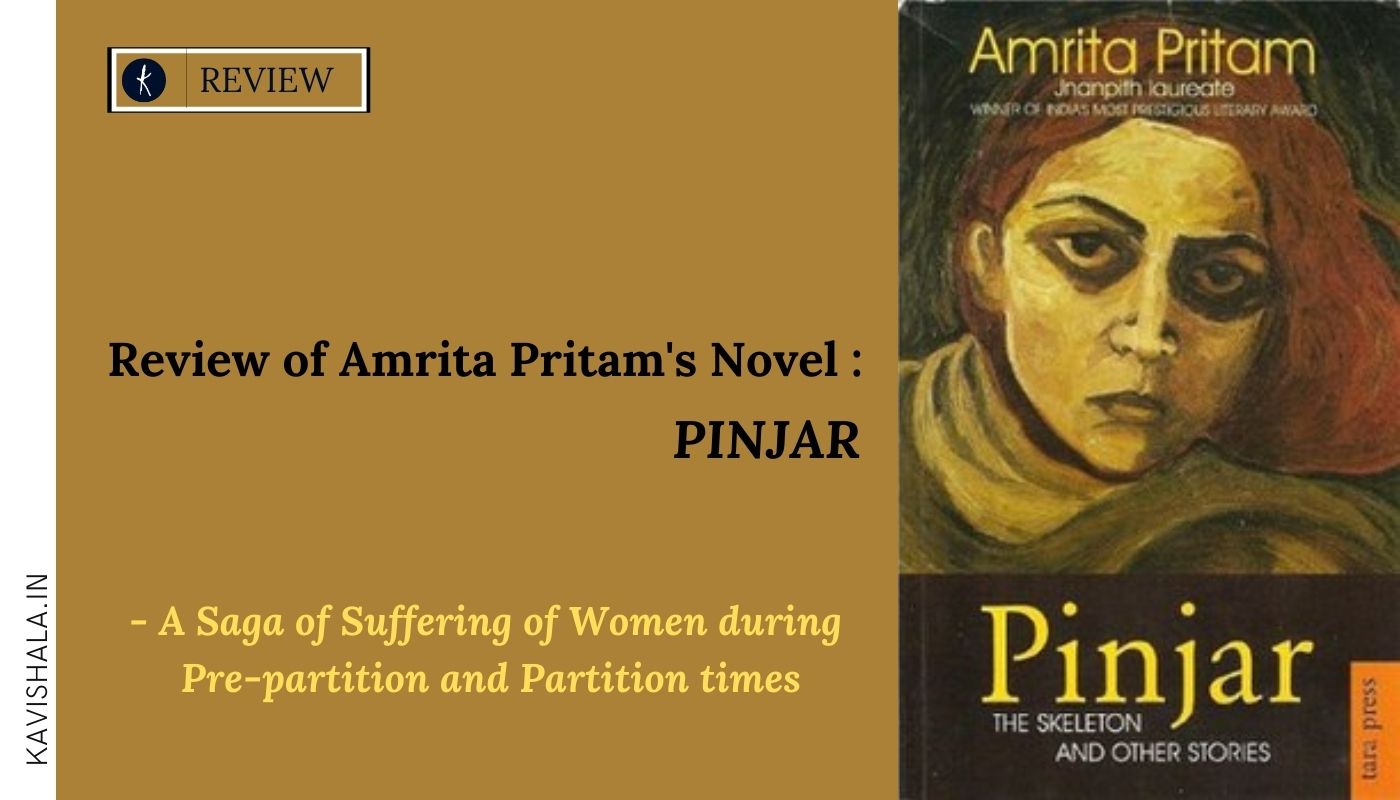
Amrita Pritam's Novel : "PINJAR", A Saga of Suffering of Women during Pre-partition and Partition times
 October 12, 2021
October 12, 2021Amrita Pritam in her writing span of sixty years wrote with words dipped in blood partition Literature has received her gift of poetry compositions, short story volumes and numerous novels of Repute. She had left Lahore and migrated to India during the partition riots. Pritam has won the janpath Award, Sahitya Academy Award, Padma Shri and many other honours. Amrita Pritam is a Woman writer per excellence. She Has carved a niche for herself in The field of partition literature. The work done on Amrita Pritam Stands high especially to study The effects of partition violence And cultural dislocation in her Novel Pinjar. Pinjar was her debut novel, A saga of suffering of women during pre-partition and partition times. She elucidated on the Memory of partition and violence which kept haunting the future generations. With the sudden Division of the country, people were taken unawares and ran helter-skelter for refuge. Innumerable People were rendered homeless overnight.
Hindu girl Pooro in Amrita Pritam’s Pinjar became a victim Of cultural dislocation after she was abducted by Muslim boy Rashid of the neighbouring village Rattoval. At the same time partition violence had started. With the division of the country she found Herself in Pakistani grounds. She had to undergo pangs of separation from her family, village and Country together. Partition created havoc with her life. Rootlessness, isolation and alienation crept Inside Pooro’s mind. The abducted and rape had altered her psyche. The act of brutality left her Shattered and dejected, robbed of her bright future with her fiancé Ramchand. She managed to escape From Rashid’s clutches after fifteen days of captivity but her parents refused to accept her back. Utter hopelessness gripped Pooro.
She had no other alternative but to return to Rashid’s House. By this time Rashid had begun to love Pooro. He was burdened with heavy guilt and was Shameful for his wrongdoing on Pooro. She started living like a skeleton with no interest in life. They Shifted to a new place Sakkar. Here Pooro left like a stray calf in a strange herd of cows. A forced marriage to Rashid converted Pooro into a Muslim suddenly. There were more changes in store for her. Till then Rashid had called her by her proper Hindu Name.
One day he brought a stranger with him and asked his wife to stretch out her arm. The man Tattooed on it the new name she had been given when she was married to Rashid. From that day she was called Hamida by all. The tra
No posts
No posts
No posts
No posts
Comments